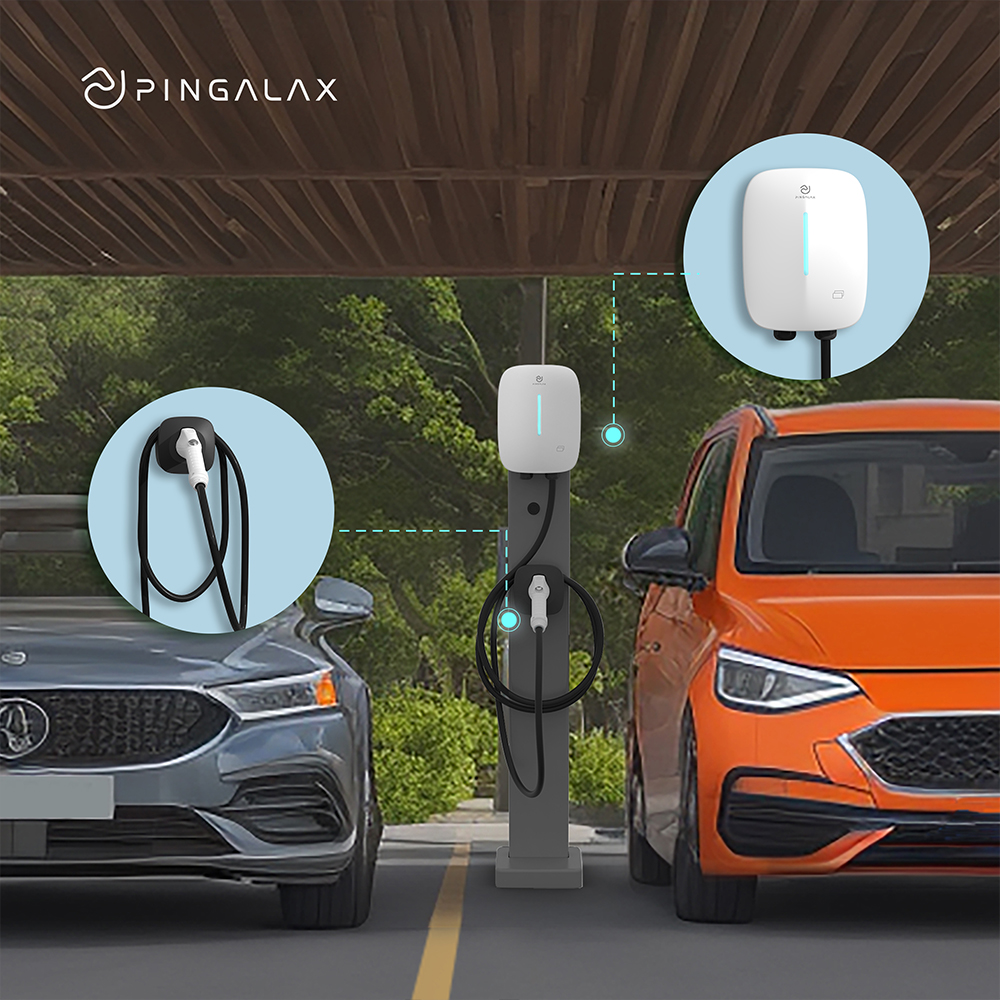Industry newsJun 05,2025By:
# **EVSE Charging Stations: Ensuring Compatibility with Your EV**
As electric vehicles (EVs) become more prevalent, understanding how to ensure compatibility between your EV and an Electric Vehicle Supply Equipment (EVSE) charging station is crucial. Not all charging stations work seamlessly with every EV, and factors such as plug type, power output, and communication protocols play a significant role.
## **1. Plug Types and Connector Standards**
Different regions and EV manufacturers use varying plug designs. The most common connectors include:
- **J1772 (Type 1):** Standard for Level 1 and Level 2 AC charging in North America.
- **CCS (Combined Charging System):** Adds DC fast charging capability to J1772, widely used in the U.S. and Europe.
- **CHAdeMO:** A DC fast charging standard primarily used by Japanese automakers like Nissan and Mitsubishi.
- **Tesla NACS (North American Charging Standard):** Proprietary to Tesla but increasingly adopted by other automakers.
Before using a public or home EVSE station, verify that your EV’s inlet matches the station’s plug type. Adapters (e.g., Tesla to J1772) can help bridge compatibility gaps.
## **2. Charging Levels and Power Output**
EVSE stations come in different power levels, and your EV’s onboard charger determines how much power it can accept:
- **Level 1 (120V):** Compatible with all EVs but very slow (3-5 miles of range per hour).
- **Level 2 (208V-240V):** Most EVs support this, delivering 10-60 miles per hour.
- **DC Fast Charging (400V+):** Not all EVs support DC fast charging—check your vehicle’s maximum charging rate (e.g., 50 kW, 150 kW, or 350 kW).
Using a station with a higher power output than your EV supports won’t damage it, but the vehicle will only draw what it can handle.
## **3. Communication Protocols and Smart Features**
Modern EVSE stations communicate with the vehicle to manage charging safely. Key considerations include:
- **ISO 15118 (Plug & Charge):** Allows automatic authentication and billing without an RFID card or app (supported by newer EVs).
- **OCPP (Open Charge Point Protocol):** Ensures compatibility with networked public chargers.
- **Wi-Fi/Cellular Connectivity:** Some home EVSE stations require app-based control, so check if your EV supports the same ecosystem.
## **4. Manufacturer-Specific Limitations**
Some EVs have unique charging restrictions:
- **Tesla:** Requires an adapter for non-Tesla stations unless using a Supercharger.
- **Nissan Leaf (early models):** Limited to 50 kW DC fast charging.
- **Hyundai/Kia/Genesis 800V EVs:** Can charge faster on ultra-high-power stations (350 kW).
### **Conclusion**
Ensuring EVSE compatibility involves checking plug types, power ratings, and communication standards. Most modern EVs work with widely available J1772 and CCS stations, but always verify your vehicle’s specifications before relying on a particular charger. As charging networks expand, universal compatibility will improve, making EV ownership even more convenient.

Check out Pingalax!